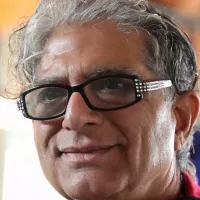North Korea, officially the Democratic People's Republic of Korea (DPRK), occupies the northern half of the Korean Peninsula, bordering China and Russia to the north and South Korea to the south via the Korean Demilitarized Zone (DMZ). Pyongyang is its capital and largest city. Both North and South Korea claim to be the legitimate government of the entire Korean Peninsula. The Yellow Sea borders its west, and the Sea of Japan its east.
1910: Start of Japanese cultural assimilation policy
In 1910, the Japanese rule began enforcing a cultural assimilation policy in Korea. Koreans were compelled to learn Japanese, adopt Japanese names, practice Shinto religion, and were prohibited from using the Korean language in schools, businesses, and public settings.
1919: March First Movement Protests
In 1919, the March First Movement protests occurred in Korea, demonstrating Korean resistance against Japanese colonial rule and leading to the formation of resistance groups in exile.
October 1945: Establishment of the Soviet Civil Administration
In October 1945, Soviet general Terenty Shtykov recommended the establishment of the Soviet Civil Administration in the northern part of the Korean Peninsula.
1945: Division of Korea and Formation of Distinct Cultures
Following the division of the Korean peninsula in 1945, two distinct cultures began to form from the common Korean heritage. North Korea had little exposure to foreign influence, and the revolutionary struggle was reflected in art.
1945: Division of Korea
In 1945, following Japan's surrender at the end of World War II, Korea was divided into two zones along the 38th parallel, with the north occupied by the Soviet Union and the south occupied by the United States.
1945: End of Japanese rule and cultural assimilation policy
In 1945, the Japanese rule over Korea ended. This marked the end of the cultural assimilation policy, which had been in effect since 1910.
February 1946: Kim Il Sung Appointed as Chairman
In February 1946, Kim Il Sung was appointed as chairman of the Provisional People's Committee of North Korea with the support of the Soviet Union.
September 1946: Uprising in South Korea
In September 1946, South Korean citizens rose up against the Allied Military Government, reflecting the political tensions and divisions of the time.
April 1948: Jeju Uprising Crushed
In April 1948, an uprising of the Jeju islanders in South Korea was violently crushed, highlighting the internal conflicts and political repression.
May 1948: South Korea Declares Statehood
In May 1948, South Korea declared its statehood, marking a significant step in the formal division of the Korean Peninsula.
September 1948: Establishment of North Korea
In September 1948, the Democratic People's Republic of Korea was established in the North, with Kim Il Sung as premier and Terenty Shtykov as the first Soviet ambassador.
1948: Adoption of Official Name
In 1948, North Korea adopted 'Democratic People's Republic of Korea' as its official name, distinguishing itself from South Korea.
1948: Soviet Forces Withdraw
In 1948, Soviet forces withdrew from North Korea, marking a transition in the region's geopolitical landscape.
1948: Formation of Separate Governments
In 1948, separate governments were formed in Korea: the socialist Democratic People's Republic of Korea in the north, aligned with the Soviet Union, and the capitalist Republic of Korea in the south, aligned with the West.
1949: Withdrawal of American Forces
In 1949, most American forces withdrew from South Korea, creating a power vacuum and increasing tensions on the Korean Peninsula.
June 1950: North Korea Invades South Korea
On 25 June 1950, the North Korean military invaded South Korea, rapidly overrunning most of the country and initiating the Korean War.
1950: North Korean Invasion of South Korea
In 1950, the North Korean invasion of South Korea initiated the Korean War, a conflict that would last for three years and involve international powers.
1950: Criteria for Highest Songbun Status
In 1950, the highest status in North Korea's Songbun system was given to individuals descended from participants in the resistance against Japanese occupation with Kim Il Sung and to factory workers, laborers, or peasants.
July 1953: Korean Armistice Agreement Signed
On 27 July 1953, fighting in the Korean War ended with the signing of an armistice that approximately restored the original boundaries between North and South Korea, but no peace treaty was signed. The war resulted in approximately 3 million deaths.
1953: Korean Armistice Agreement
In 1953, the Korean Armistice Agreement brought about a ceasefire in the Korean War and established a demilitarized zone (DMZ) between North and South Korea. However, a formal peace treaty was never signed.
December 1955: Pronouncement of Juche Ideology
In December 1955, Juche was pronounced in a speech called On Eliminating Dogmatism and Formalism and Establishing Juche in Ideological Work in order to emphasize a Korea-centered revolution.
1956: August Faction Incident
During the 1956 August Faction Incident, Kim Il Sung successfully resisted efforts by the Soviet Union and China to depose him, demonstrating political independence.
1957: Industrial Production Returns to Pre-War Levels
By 1957, industrial production in North Korea had returned to pre-war levels, signaling a period of recovery and growth.
October 1958: Withdrawal of Chinese Troops
In October 1958, the final withdrawal of Chinese troops from North Korea solidified North Korea's effective independence.
1958: Kim Il Sung on Songbun Class Structure
In 1958, Kim Il Sung described the North Korean population as consisting of three classes under the Songbun system: the loyal "core class" (25%), the "wavering class" (55%), and the "hostile class" (20%).
1959: Establishment of Mansudae Art Studio
In 1959, the Mansudae Art Studio was established and has since dominated most aspects of art in North Korea. It is likely the largest art factory in the world, employing around 1,000 artists.
1960: Systematic inefficiency arose around 1960
Systematic inefficiency began to arise around 1960, when the economy shifted from the extensive to the intensive development stage.
1964: North Korea's first Olympics appearance
In 1964, North Korea made its first appearance in the Olympics.
1968: Assassination Attempts on South Korean Leaders
In 1968, North Korea failed in assassination attempts on South Korean leaders. There were more attempts in 1974, and the Rangoon bombing in 1983.
1971: Secret High-Level Contacts
In 1971, secret, high-level contacts between North and South Korea began, marking the first steps toward dialogue after the war.
1971: Premiere of Sea of Blood
In 1971, the "Sea of Blood" opera premiered. It is the most widely performed of the Five Great Revolutionary Operas.
1972: Introduction of Juche into the Constitution
In 1972, the Juche ideology was formally introduced into the constitution of North Korea.
1972: July 4 South-North Joint Statement
In 1972, the July 4 South–North Joint Statement established principles of working toward peaceful reunification, signaling a potential thaw in relations.
1972: Agreement on peaceful reunification
In 1972, the two Koreas agreed in principle to achieve reunification through peaceful means and without foreign interference.
1972: North Korea's Summer Olympics debut
The 1972 Olympics marked North Korea's Summer Games debut. The nation won five medals, including one gold.
1973: Separate Memberships in International Organizations
In 1973, South Korea declared its preference that the two Koreas should seek separate memberships in international organizations, leading to the failure of reunification talks.
1973: Separation of Ministry of State Security
In 1973, The Ministry of State Security was separated from the Ministry of Public Security to conduct domestic and foreign intelligence, counterintelligence and manage the political prison system.
1974: More Assassination Attempts on South Korean Leaders
In 1974, North Korea failed in further assassination attempts on South Korean leaders, as part of ongoing tensions.
1974: Payment of taxes abolished
In 1974, the payment of taxes was officially abolished in North Korea.
1976: Economic Parity with South Korea
As late as 1976, North Korean GDP per capita was equal to that of South Korea, indicating a period of relative economic success.
1976: Axe Murder Incident at Panmunjom
In 1976, tensions flared over the axe murder incident at Panmunjom, increasing the hostile relationship.
1978: Study of Russian and English made compulsory
The study of Russian and English was made compulsory in upper middle schools in 1978.
1979: Cult of Personality Surrounding Kim Il Sung and Kim Jong Il
In 1979, journalist Bradley Martin observed that nearly all music, art, and sculpture in North Korea glorified "Great Leader" Kim Il Sung, with his personality cult extending to his son, "Dear Leader" Kim Jong Il.
October 1980: Kim Il Sung proposes a federation between North and South Korea
On October 10, 1980, the then North Korean leader Kim Il Sung proposed a federation between North and South Korea named the Democratic Federal Republic of Korea in which the respective political systems would initially remain.
1983: Rangoon Bombing
In 1983, North Korea failed in the Rangoon bombing, which was another assassination attempt on South Korean leaders.
1983: Alleged involvement in Rangoon bombing
North Korea was designated a state sponsor of terrorism by the U.S. because of its alleged involvement in the 1983 Rangoon bombing.
1987: Economy Begins to Stagnate
In 1987, the North Korean economy began to stagnate, marking the start of a long period of economic decline.
1987: Alleged involvement in bombing of South Korean airliner
North Korea was designated a state sponsor of terrorism by the U.S. because of its alleged involvement in the 1987 bombing of a South Korean airliner.
1990: External Trade
In 2013, overall external trade reached a total of $7.3 billion, the highest amount since 1990, while inter-Korean trade dropped to an eight-year low of $1.1 billion.
December 1991: Dissolution of the Soviet Union
In December 1991, the Soviet Union was dissolved, ending its aid and support to North Korea and creating economic challenges.
1991: North Korea Joins the United Nations
In 1991, North Korea became a member of the United Nations, marking its formal recognition by the international community. Alongside UN membership, North Korea also maintains membership in organizations such as the Non-Aligned Movement, the G77, and the ASEAN Regional Forum.
1991: Dissolution of the Soviet Union
In 1991, the dissolution of the Soviet Union resulted in a halt to Soviet aid to North Korea, leading to an almost complete collapse of the North Korean economy.
1992: Kim Jong Il Takes Over State Tasks
In 1992, as Kim Il Sung's health began deteriorating, his son Kim Jong Il slowly began taking over various state tasks.
December 1993: North Korea declared seven-year plan unsuccessful
North Korea declared the last seven-year plan unsuccessful in December 1993 and thereafter stopped announcing plans.
1994: Famine in North Korea
From 1994 to 1998, North Korea experienced a severe famine, leading to widespread malnutrition and suffering among the population.
1994: Death of Kim Il Sung
In 1994, Kim Il Sung died of a heart attack, leading to a three-year period of national mourning before Kim Jong Il officially announced his position as the new leader.
1994: Kim Jong Il Succeeds Kim Il Sung
In 1994, Kim Jong Il succeeded his father, Kim Il Sung, as the leader of North Korea.
1994: Agreed Framework Signed
In 1994, North Korea promised to halt its development of nuclear weapons under the Agreed Framework, negotiated with U.S. president Bill Clinton. Also Kim Jong Il instituted Songun policy.
1994: Kim Il Sung's Death
Kim Il Sung, the founder and leader of North Korea until his death in 1994, is remembered as the country's "eternal President".
1995: Start of the North Korean famine
The North Korean famine began in 1995, lasted for three years, and resulted in the deaths of between 240,000 and 420,000 North Koreans.
1996: Government Accepted UN Food Aid
In 1996, due to a widespread famine exacerbated by flooding in the mid-1990s, the North Korean government accepted UN food aid.
1997: International food shipments initiated
In 1997, international donors led by the United States initiated shipments of food through the World Food Program to combat the famine.
1997: Film Titanic shown to university students
In 1997, the film Titanic was released and is frequently shown to university students in North Korea as an example of Western culture, despite Western productions generally being limited to private showings for high-ranking Party members.
1998: Institution of the Sunshine Policy
In 1998, South Korean President Kim Dae-jung instituted the Sunshine Policy. The Sunshine Policy encouraged other countries to engage with North Korea and allowed Pyongyang to normalize relations with EU states and establish joint economic projects between North and South Korea.
1998: Government began structural reforms
In 1998, in an attempt to recover from the economic collapse, the government began structural reforms that formally legalized private ownership of assets and decentralized control over production.
1998: End of Famine Period
In 1998, the period of intense famine in North Korea came to an end, though the population continued to face challenges related to malnutrition.
1998: Malnutrition declines to 60%
The number of malnourished children declined from 60% in 1998 to 37% in 2006 and 28% in 2013.
2000: Economic situation improved
By 2000, the economic situation improved owing to a massive international food assistance effort, but the economy continues to suffer from food shortages, dilapidated infrastructure and a critically low energy supply.
2000: Demographic experts prediction
Demographic experts in the 20th century estimated that the population would grow to 25.5 million by 2000 and 28 million by 2010, but this increase never occurred due to the North Korean famine.
2000: Improved relations with South Korea
Following the 2000 inter-Korean summit, improved relations with South Korea led to a decline in direct ideological messages in North Korean pop songs. Themes like comradeship, nostalgia, and building a powerful country persisted.
2000: Inter-Korean Summit and June 15th North-South Joint Declaration
In 2000, the inter-Korean summit occurred, where South Korean President Kim Dae-jung visited Kim Jong Il in Pyongyang. Both North and South Korea signed the June 15th North–South Joint Declaration, promising to seek peaceful reunification.
2001: Change in US Administration
In 2001, the international environment changed when George W. Bush became U.S. President, marking a shift in relations between the U.S. and North Korea.
2002: Second round of reforms
A second round of reforms in 2002 led to an expansion of market activities, partial monetization, flexible prices and salaries, and the introduction of incentives and accountability techniques.
2002: 3G network operated by Koryolink
Cellular coverage became available in 2002 with a 3G network operated by Koryolink, a joint venture with Orascom Telecom Holding. The number of subscribers has increased from 3,000 in 2002 to almost two million in 2013.
2002: North Korea Included in Axis of Evil
In 2002, President George W. Bush included North Korea in his axis of evil in his State of the Union Address, leading to strained relations and increased efforts by North Korea to acquire nuclear weapons.
2002: Decline in population growth rate
The famine had a significant impact on the population growth rate, which declined to 0.9% annually in 2002.
2003: Report on water and sanitation access
According to a 2003 report by the United States Department of State, almost 100% of the population in North Korea had access to water and sanitation.
2003: United Nations Environmental Programme report on forest cover
In 2003, a United Nations Environmental Programme report stated that forests covered over 70 percent of North Korea, mostly on steep slopes.
July 2004: Goguryeo Tombs Registered as UNESCO World Heritage Site
In July 2004, The Complex of Koguryo Tombs were registered on UNESCO's list of World Heritage Sites, becoming the first World Heritage property of North Korea by the UNESCO World Heritage Committee (WHC).
2004: South Korean Assessment of North Korea's Chemical Weapons Stockpile
According to a 2004 South Korean assessment, North Korea possesses a stockpile of chemical weapons estimated to amount to between 2,500 and 5,000 tons, including nerve, blister, blood, and vomiting agents, as well as the ability to cultivate and produce biological weapons including anthrax, smallpox, and cholera.
2004: U.S. State Department estimated military spending
From 2004 to 2014, The U.S. State Department estimated that North Korea's military spending averaged 23% of its GDP, the highest level in the world.
2005: Foreign trade surpasses pre-crisis levels
In 2005, North Korea's foreign trade surpassed pre-crisis levels and continues to expand.
July 2006: UN Security Council resolution 1695
As a result of its nuclear and missile tests, North Korea was sanctioned under United Nations Security Council resolution 1695 of July 2006.
October 2006: UN Security Council resolution 1718
As a result of its nuclear and missile tests, North Korea was sanctioned under United Nations Security Council resolution 1718 of October 2006.
October 2006: First Nuclear Weapons Test
On 9 October 2006, North Korea announced it had conducted its first nuclear weapons test, escalating international concerns and tensions.
2006: Malnutrition levels in children decreased
The number of malnourished children declined from 60% in 1998 to 37% in 2006 and 28% in 2013.
October 2007: Signing of Eight-Point Peace Agreement
On October 4, 2007, South Korean President Roh Moo-hyun and Kim Jong Il signed an eight-point peace agreement.
2007: Decline in deaths from lower respiratory infection
Since 2007, deaths caused by lower respiratory infection, one of the leading causes of death attributed to communicable diseases in North Korea, have declined by six percent.
October 2008: United States removes North Korea from list of states that sponsor terrorism
On October 11, 2008, the United States removed North Korea from its list of states that sponsor terrorism after Pyongyang agreed to cooperate on issues related to its nuclear program.
2008: Child mortality rate estimated
In 2008, the child mortality rate in North Korea was estimated to be 45 per 1,000 live births, which is better than other economically comparable countries such as Chad, which had a rate of 120 per 1,000, even though Chad was wealthier at the time.
2008: Literacy listed in census
The 2008 census listed the entire population as literate.
June 2009: UN Security Council resolution 1874
As a result of its nuclear and missile tests, North Korea was sanctioned under United Nations Security Council resolution 1874 of June 2009.
2009: North Korea ends agreements with South Korea
In 2009, North Korea ended all previous agreements with South Korea in response to the South Korean president Lee Myung-bak adopting a more hard-line approach. North Korea also deployed additional ballistic missiles and placed its military on full combat alert after threats from South Korea, Japan, and the United States to intercept a Unha-2 space launch vehicle.
2009: North Korea joined the Outer Space Treaty
In 2009, North Korea joined the Outer Space Treaty and has stated its intentions to undertake crewed and Moon missions.
2009: Government attempts to stem the free market
In 2009, the government attempted to stem the expanding free market by banning jangmadang and the use of foreign currency, heavily devaluing the won and restricting the convertibility of savings in the old currency, but the resulting inflation spike and rare public protests caused a reversal of these policies.
2009: Constitution Elevates Songun Policy
The 2009 constitution dropped references to communism and elevated the Songun military first policy while explicitly confirming the position of Kim Jong Il.
2010: Report identifies areas for scientific cooperation
A 2010 report by the South Korean Science and Technology Policy Institute identified polymer chemistry, single carbon materials, nanoscience, mathematics, software, nuclear technology and rocketry as potential areas of inter-Korean scientific cooperation.
2010: Military expenditure amounted to 15.8 percent of the state budget
According to North Korean state media, military expenditure amounted to 15.8 percent of the state budget in 2010.
2010: Demographic experts prediction not achieved
Demographic experts in the 20th century estimated that the population would grow to 25.5 million by 2000 and 28 million by 2010, but this increase never occurred due to the North Korean famine.
2010: Increased Tensions with South Korea and the United States
In 2010, tensions between North Korea and South Korea and the United States increased due to the sinking of the South Korean warship Cheonan and North Korea's bombardment of Yeonpyeongdo.
2010: Sea of Blood tour in China
In 2010, the opera "Sea of Blood" had a successful tour in China, having been performed over 1,500 times since its premiere in 1971.
December 2011: Death of Kim Jong Il and Succession of Kim Jong Un
On December 17, 2011, Kim Jong Il died from a heart attack and his youngest son, Kim Jong Un, was announced as his successor to lead North Korea.
2011: Kim Jong Il's death and legacy
Following his death in 2011, Kim Jong Il, who succeeded Kim Il Sung as the leader of North Korea, was announced as "Eternal General Secretary" and "Eternal Chairman of the National Defence Commission".
2011: Kim Jong Un Succeeds Kim Jong Il
In 2011, Kim Jong Un succeeded his father, Kim Jong Il, as the leader of North Korea.
December 2012: Launch of Kwangmyŏngsŏng-3 Unit 2
In December 2012, North Korea became the tenth spacefaring nation with the launch of Kwangmyŏngsŏng-3 Unit 2, which successfully reached orbit but was believed to be crippled and non-operational.
2012: Kim Un-guk breaks weightlifting world record
At the 2012 Summer Olympics in London, weightlifter Kim Un-guk broke the world record in the Men's 62 kg category.
2012: Associated Press opens bureau in Pyongyang
In 2012, The Associated Press opened the first Western all-format, full-time bureau in Pyongyang, North Korea.
2012: Gross National Income Per Capita
In 2012, gross national income per capita was $1,523, compared to $28,430 in South Korea.
January 2013: UN Security Council resolution 2087
As a result of its nuclear and missile tests, North Korea was sanctioned under United Nations Security Council resolution 2087 of January 2013.
April 2013: Korean Committee of Space Technology becomes National Aerospace Technology Administration
In April 2013, the Korean Committee of Space Technology was replaced by the National Aerospace Technology Administration.
December 2013: Dennis Rodman visits North Korea to train basketball team
In December 2013, former American basketball professional Dennis Rodman visited North Korea to help train the national team after developing a friendship with Kim Jong Un.
2013: Ten Fundamental Principles of the Workers' Party of Korea
In 2013, Clause 2 of Article 10 of the newly edited Ten Fundamental Principles of the Workers' Party of Korea stated that the party and revolution must be carried "eternally" by the "Mount Paektu Bloodline".
2013: Cardiovascular disease as largest cause of death
In 2013, cardiovascular disease was reported as the largest cause of death in North Korea. Stroke, COPD, and ischaemic heart disease are major contributors. Risk factors include urbanization, aging population, and high rates of smoking and alcohol consumption among men.
2013: High-speed railway construction approved
In 2013, construction of a high-speed railway connecting Kaesong, Pyongyang, and Sinuiju, with speeds exceeding 200 kilometers per hour (120 mph), was approved.
2013: Domestic food production almost recovered
In 2013, domestic food production almost recovered to the recommended annual level of 5.37 million tons of cereal equivalent, but the World Food Program reported a continuing lack of dietary diversity and access to fats and proteins.
2013: Overhaul of SEZ system
In 2013, the SEZ system was overhauled when 14 new zones were opened and the Rason Special Economic Zone was reformed as a joint Chinese-North Korean project.
2013: Increase in mobile subscribers
The number of subscribers using the 3G Koryolink network increased to almost two million in 2013, since cellular coverage became available in 2002.
2013: Structure of North Korea's causes of death
While North Korea is classified as a low-income country, the structure of North Korea's causes of death (2013) is unlike that of other low-income countries.
2014: UN Inquiry into Human Rights Record
A 2014 UN inquiry into the DPRK's human rights record found evidence for "systematic, widespread and gross human rights violations" and stated that "the gravity, scale and nature of these violations reveal a state that does not have any parallel in the contemporary world".
2014: U.S. State Department estimated military spending
From 2004 to 2014, The U.S. State Department estimated that North Korea's military spending averaged 23% of its GDP, the highest level in the world.
2014: Population growth rate in North Korea
In 2014 the population growth rate in North Korea was 0.5%.
2014: Legal regulations for renewable energy adopted
In 2014, a set of legal regulations were adopted in North Korea that stressed the development of geothermal, wind, and solar energy along with recycling and environmental conservation.
2014: Moranbong Band's popularity
In 2014, the all-girl Moranbong Band was described as the most popular musical group in North Korea.
2014: North Korea Dismisses Human Rights Accusations
In a 2014 report to the UN, North Korea dismissed accusations of atrocities as wild rumors.
2014: Establishment of Miraewon network of electronic libraries
The Miraewon network of electronic libraries was established in 2014 under the slogan "constructing a powerful knowledge economy".
2015: North Korea's Diplomatic Relations
As of 2015, North Korea had diplomatic relations with 166 countries and embassies in 47 countries.
2015: Access to improved sanitation facilities
In 2015, 80% of the population in North Korea had access to improved sanitation facilities.
February 2016: Launch of Kwangmyongsong-4
On 7 February 2016, Korean Central Television announced that the Earth observation satellite, Kwangmyongsong-4, had successfully been put into orbit.
September 2016: North Korean Internet DNS data left open
On 19 September 2016, a TLDR project noticed the North Korean Internet DNS data and top-level domain was left open which allowed global DNS zone transfers. A dump of the data discovered was shared on GitHub.
2016: World Bank report on causes of death
In 2016, according to a World Bank report, approximately 9.5% of deaths in North Korea were attributed to communicable diseases and maternal, prenatal, and nutrition conditions. This was slightly lower than South Korea's 10.1%, significantly less than other low-income countries at 50.1%, but higher than high-income countries which stood at 6.7%.
2016: Causes of death
In 2016, non-communicable diseases such as cardiovascular disease and cancers accounted for 84 percent of the total deaths in North Korea.
May 2017: Election of Moon Jae-in
In May 2017, Moon Jae-in was elected president of South Korea. Moon Jae-in promised to return to the Sunshine Policy.
November 2017: United States re-designates North Korea as a state sponsor of terrorism
On November 20, 2017, North Korea was re-designated a state sponsor of terrorism by the U.S. under the administration of Donald Trump after continued nuclear tests.
December 2017: UN Security Council resolution 2397
As a result of its nuclear and missile tests, North Korea was sanctioned under United Nations Security Council resolution 2397 in December 2017.
2017: North Korea's Press Freedom Ranking
In 2017, North Korea was ranked 180th out of 180 countries in Reporters Without Borders' annual Press Freedom Index, highlighting the extreme government control over media and censorship within the country.
2017: Strained relations with Malaysia due to assassination
In 2017, relations between North Korea and Malaysia were strained by the assassination of Kim Jong-nam.
2017: Increased tensions between the United States and North Korea
In 2017, tensions between the United States and North Korea escalated following Donald Trump's presidency, with heightened rhetoric exchanged between the two nations and threats of military action.
February 2018: Détente at the Winter Olympics
In February 2018, a détente developed at the Winter Olympics, which were held in South Korea.
June 2018: Trump-Kim Summit in Singapore
On June 12, 2018, US President Trump met with Kim in Singapore, signing an agreement endorsing the 2017 Panmunjom Declaration, pledging to work towards denuclearizing the Korean Peninsula.
2018: Global Slavery Index Ranking
According to the Walk Free's 2018 Global Slavery Index, North Korea is ranked highest in the world in terms of the percentage of population in modern slavery, with 10.4 percent enslaved.
2018: Détente between North Korea, South Korea, and the United States
In 2018, tensions decreased and a détente developed, leading to a series of summits between Kim Jong Un of North Korea, President Moon Jae-in of South Korea, and President Trump of the United States.
February 2019: Trump-Kim Summit in Hanoi fails to achieve an agreement
From February 27 to 28, 2019, Trump and Kim met in Hanoi, but failed to achieve an agreement.
June 2019: Xi Jinping visits North Korea
In June 2019, relations between North Korea and China improved after Xi Jinping, General Secretary of the Chinese Communist Party and Chinese leader, visited North Korea.
June 2019: Trump meets Kim at Korean DMZ
On June 30, 2019, Trump met with Kim along with South Korean president Moon Jae-in at the Korean DMZ.
2019: Forest Landscape Integrity Index ranking
In 2019, North Korea had a Forest Landscape Integrity Index mean score of 8.02/10, ranking it 28th globally out of 172 countries.
2019: Life expectancy in North Korea
North Korea has a life expectancy of 72.3 years in 2019, according to HDR 2020.
2019: Choe Ryong-hae becomes Chairman of the SPA Standing Committee
Since 2019, Choe Ryong-hae has been the Chairman of the SPA Standing Committee, making him the third-ranking official in North Korea.
January 2020: North Korea closes borders to foreign tourists
On January 22, 2020, North Korea closed its borders to foreign tourists in response to the threat of the COVID-19 pandemic.
2020: Study on religions in North Korea published
According to a 2020 study published by the Centre for the Study of World Christianity, 73% of the population are irreligious (58% agnostic, 15% atheist), 13% practice Chondoism, 12% practice Korean shamanism, 1.5% are Buddhist, and less than 0.5% practice another religion such as Christianity, Islam, or Chinese folk religion.
2020: Life expectancy in North Korea
North Korea has a life expectancy of 72.3 years in 2019, according to HDR 2020.
January 2021: Kim Jong Un elected as General Secretary
On January 10, 2021, Kim Jong Un was formally elected as the General Secretary in the 8th Congress of the Workers' Party of Korea, inheriting a top title previously held by Kim Il Sung and Kim Jong Il.
October 2021: Test of Hwasong-11S
On 19 October 2021, North Korea successfully tested a new type of submarine-launched ballistic missile, named Hwasong-11S.
2021: WPK Reasserts Commitment to Communism
In 2021, the Workers' Party of Korea reasserted its commitment to communism.
March 2022: North Korea conducts ICBM test launch
On March 24, 2022, North Korea conducted a successful ICBM test launch for the first time since the 2017 crisis.
September 2022: North Korea declares itself a nuclear state
In September 2022, North Korea passed a law that formally declared itself a nuclear state.
September 2023: Estimates of North Korea's Nuclear Arsenal Size
As of September 2023, estimates of North Korea's nuclear arsenal size ranged between 40 and 116 assembled nuclear warheads. Delivery capabilities are provided by the Rocket Force, which has some 1,000 ballistic missiles with a range of up to 11,900 km.
December 30, 2023: Kim Jong Un declares South Korea a "colonial vassal state"
On December 30, 2023, North Korean leader Kim Jong Un declared South Korea a "colonial vassal state", marking a departure from mutual claims over the entire Korean Peninsula.
January 15, 2024: Call for constitutional amendment to redefine border with South Korea
On January 15, 2024, Kim Jong Un called for a constitutional amendment to redefine the boundary with South Korea as the 'Southern National Borderline'.
January 2024: North Korea no longer seeks reunification
In January 2024, North Korea officially announced that it would no longer seek reunification with South Korea. Kim Jong Un called for "completely occupying, subjugating and reclaiming" South Korea if war breaks out. Kim Jong Un also announced that the constitution should be changed such that South Korea would be considered the "primary foe and invariable principal enemy" of North Korea. Additionally, government agencies tasked with promoting reunification were closed.
October 2024: Increased Military Recruitment and Border Tensions
In October 2024, North Korea claimed that 1.4 million people joined its military after accusing South Korea of a drone intrusion. South Korea restricted leaflet launches near the border to prevent potential conflict, while both sides engaged in psychological warfare.
December 2024: Pak Thae-song appointed Premier
On December 29, 2024, Pak Thae-song was appointed Premier of North Korea, becoming the second-ranking official after Kim Jong Un.
2024: DPRK Formally Abandoned Efforts to Reunify Korea
In 2024, the Democratic People's Republic of Korea (DPRK) formally abandoned its efforts to reunify Korea, signaling a significant shift in its policy towards the South.
2044: Renewable energy target set
North Korea's long-term objective is to curb fossil fuel usage and reach an output of 5 million kilowatts from renewable sources by 2044, up from its current total of 430,000 kilowatts from all sources.
2087: UN Security Council resolution 2087
As a result of its nuclear and missile tests, North Korea was sanctioned under United Nations Security Council resolution 2087.
Mentioned in this timeline

Basketball is a team sport played on a rectangular court...

Donald John Trump is an American politician media personality and...

George W Bush the rd U S President - is...

Sony is a Japanese multinational conglomerate based in Tokyo Its...

Dennis Rodman is an American former professional basketball player known...
The Union of Soviet Socialist Republics USSR existed from to...
Trending

43 minutes ago Jerry O'Connell Quits Smoking After Bedroom Ultimatum and Hypnosis: A Healthier Choice
44 minutes ago Dominion Energy's Earnings: Expectations, Stock Movement, and Valuation Assessment Approaches

2 hours ago DC Area Braces for Snow: School Closures and Travel Delays Expected

2 hours ago Yoko Taro helms new Evangelion series and 30th Anniversary festival opens.

3 hours ago Deepak Chopra's Ties to Jeffrey Epstein: Messages Reveal Close Relationship and Travel Invitations.
3 hours ago Alamance preschool reopens post-storm; Noodle Ju'B offers ramen in Winston-Salem.
Popular

Jesse Jackson is an American civil rights activist politician and...

Barack Obama the th U S President - was the...

Bernie Sanders is a prominent American politician currently serving as...

Michael Joseph Jackson the King of Pop was a highly...
The Winter Olympic Games a major international multi-sport event held...

Susan Rice is an American diplomat and public official prominent...